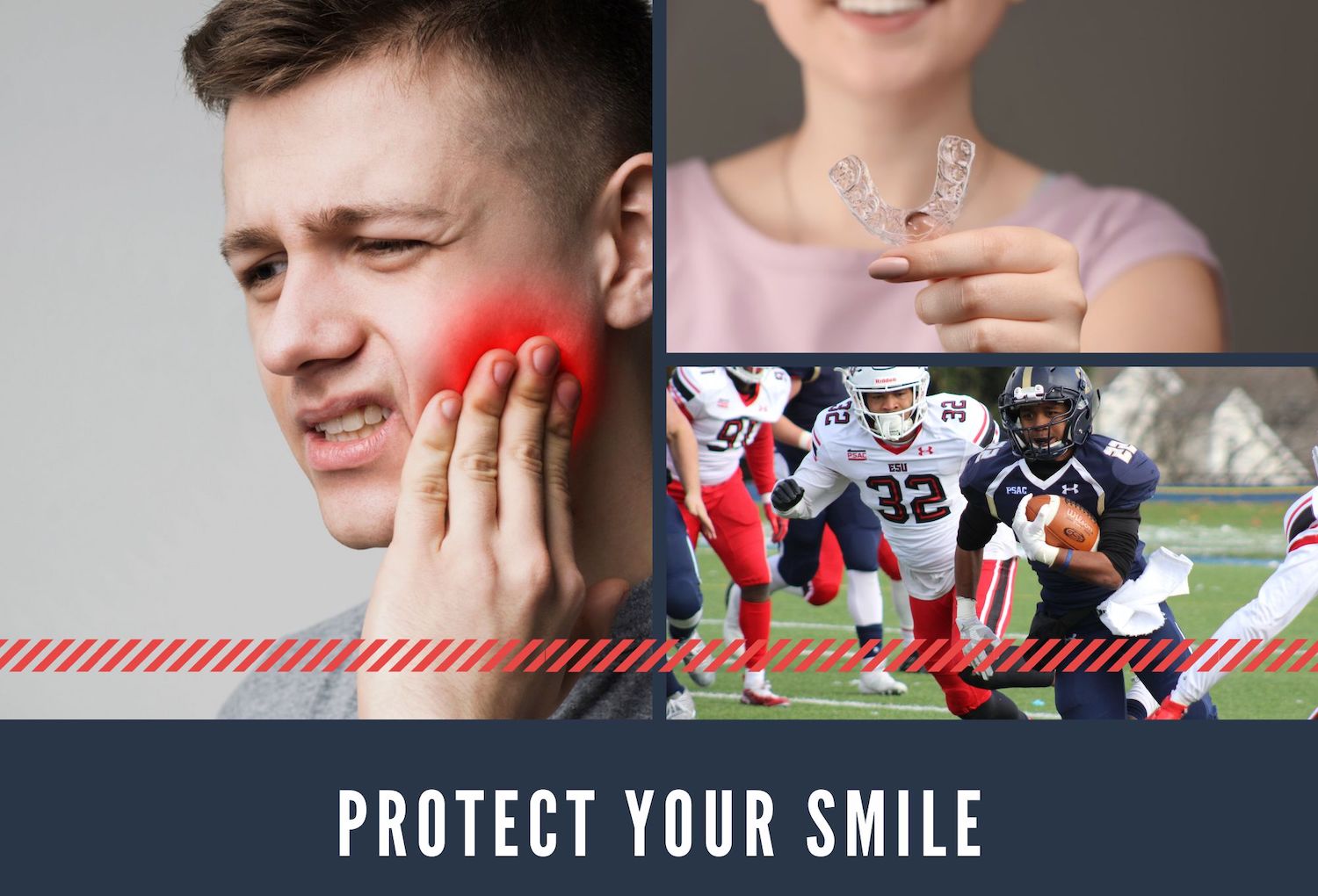For many, the word ‘mouthguard’ evokes images of professional athletes charging down a field, teeth shielded from potential blows. But mouthguards aren’t just for the pros. From sports enthusiasts to individuals dealing with nighttime teeth grinding, many can benefit from this protective oral accessory.
Why Use a Mouthguard?
- Protection During Sports: Whether you’re playing a contact sport like football or a non-contact sport like basketball, there’s always a risk of facial injury. A mouthguard acts as a cushion for blows that might otherwise result in broken teeth, injuries to the lips and face, and even jaw fractures. Moreover, for young athletes, mouthguards are crucial as they protect developing teeth and can save on costly dental repairs in the event of an injury.
- Prevention of Nighttime Teeth Grinding: Many people unknowingly grind their teeth at night, a condition known as bruxism. Over time, this can lead to worn down, chipped, or damaged teeth, as well as headaches and jaw pain. A special type of mouthguard, often called a nocturnal bite plate or bite splint, can be prescribed for these individuals. This mouthguard protects the teeth from the force of grinding and can help alleviate associated symptoms.
Types of Mouthguards
- Custom-fitted: These are designed and made in a dental office or a professional laboratory based on your dentist’s instructions. Custom-fitted by your dentist, these mouthguards are uniquely crafted to fit the exact contours of your individual teeth and mouth. This precise fit not only ensures maximum protection but also makes it much more comfortable to wear. There’s less bulk, meaning easier breathing and speaking. While custom mouthguards might come with a slightly higher price tag than store-bought varieties, the investment is justified. They last longer, offer unparalleled protection, and can save on potential dental repair costs in the future
- Boil and bite: Available at many sporting goods stores, these mouthguards are first softened in boiling water and then inserted and allowed to adapt to the shape of your mouth.
- Stock: These are pre-made and ready to wear. Though they’re the least expensive option, they often don’t fit very well and can be bulky, making breathing and talking difficult.
Taking Care of Your Mouthguard
To get the most out of your mouthguard and ensure it provides optimal protection, follow these care guidelines:
- Clean it regularly: Rinse your mouthguard with cold water or with a mouth rinse before and after each use. Occasionally clean it with mild soap and a soft toothbrush.
- Store it properly: Keep your mouthguard in a sturdy, perforated container that allows air circulation, which helps prevent damage.
- Check for wear: Replace your mouthguard if it shows signs of wear, damage, or if it no longer fits properly, especially if you’re a child or teenager, as your mouth will still be growing.
- Bring it to your dental check-ups: Your dentist can ensure it still fits well and is in good condition.
In Conclusion
A mouthguard is more than just a protective tool – it’s an investment in the safety of your smile. Whether you’re a dedicated athlete, someone who grinds their teeth at night, or a parent of a sporty youngster, the right mouthguard can make all the difference in preventing dental injuries. If you’re considering getting one, talk to your dentist. They can guide you on the best type for your needs and ensure that it fits perfectly, offering maximum protection.
Protecting your teeth should always be a priority. With a mouthguard, you can confidently face challenges, whether on the sports field or in the quiet of night, knowing that your smile is guarded.
————–
This blog post is provided for informational purposes only and should not be interpreted as medical advice. The content of this post is not intended to be a substitute for professional medical advice, diagnosis, or treatment. Always seek the advice of your doctor or other qualified health provider with any questions you may have regarding a medical condition.

